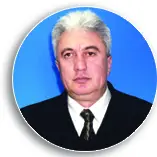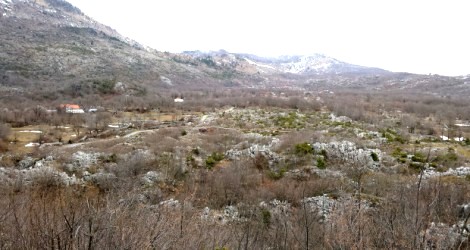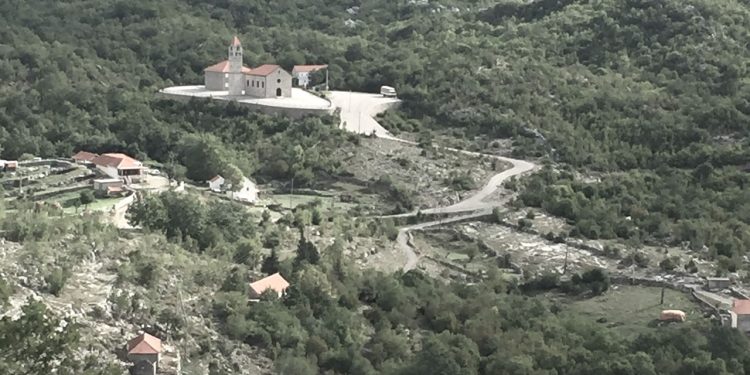By Gjekë Gjonaj
Memorie.al / Historically, the Trieshane family was once traditional, patriarchal and based on a union of people living in a single household, formed on the basis of marital union. A characteristic of the Trieshane family is that; it has always lived with the idea of expanding the family and growing the family. Marriage was done to have as many children as possible and to add a working person to the house. The young couple was happy with the birth of children. In the past, patriarchal families were always looking for sons, for the enrichment of the family, for prosperity and progress. Parents were happy with sons and very few with daughters.
In the historical memory of the old Trieshane, the idea remains that they looked to choose for marriage, sons and daughters from families with many men, thinking that the son’s bride would give birth to sons. The woman who gave birth to sons was more privileged in the family. One of the characteristics of the traditional Trieste family is that it was united, and each of them almost always had good contact with the other members.
It is important to say that this family had a master and mistress of the house. They were the ones responsible for setting the rules for who owned what. The master of the house was the most authoritative man in the family, the most hardworking and extended over every aspect of life. He himself worked hard to make others work too. His duty was to protect the general interests of the family as best he could. He taught and advised everyone (people) of the house how to behave and act. At home he tried to be impartial and fair.
To show no anger towards anyone and to assign each one, whether man or woman, a task every day. Without the permission of the head of the house, none of the family members dared to leave work, could not go to work somewhere else, or seek medical help. Without the consent, or rather the desire, of the head of the house, no boy or girl could get engaged and marry of their own accord, go to school, and perform other tasks, except those that he had assigned not only to them, but also to the other men and women of the family.
In addition to these, the head of the house was the only person who had complete control over the family’s takulina (money bag). Any money (spending money) earned by the family or as a gift had to be given to the head of the household, who spent it for the good of the family, according to a certain rule. For the purchase and sale of property and products owned jointly by the whole family, he could consult their husbands, but not their wives.
Since he carried the family purse (finances), the head of the household generally went to the market (market) himself, where he sold his products and with the proceeds bought things that he considered necessary for the family, clothing, coffee, sugar, and cigarettes, to preserve the dignity (honor) of the family in the eyes of friends. In the event that the head of the household became physically unable to take the long and difficult journey through the mountains to go to the market, he would appoint one of the other family members. The master of the house, according to tradition, sat in the place of honor inside the house, to the right of the fireplace.
When the master of the house entered the room, everyone stood up and remained standing until he sat down. If he carried a gun, one of the family members would take his rifle or belt weapons and hang them on the door or on the wall. In his presence, the young people could neither drink raki nor smoke. If he wanted to talk (muhabet), the others followed him, while when he preferred to be silent, the others did not speak. Children in his presence were allowed to stay in the room, but not to speak loudly.
When lunch or dinner was served, no other family member was allowed to put the spoon in the cini-sahan (plate) in front of him, and when he left the room, he presided. An important role in the early (traditional) Triesan families, organized through customary law, which has especially truncated the woman and has lost her image, was also played by the mistress of the house, who was appointed (appointed) by the master of the house. The latter, through her (the mistress of the house), ruled the women of the family. She, like the master of the house, had to work with justice, intelligence, wisdom and impartiality.
She gave them tasks, ordered and supervised the work that the women did inside the house, yard and garden. The position of the woman (wife) in the traditional Triesan society was not only difficult, caused by backwardness and patriarchy, but also by the influence of customary norms, based on the Kanun of Lekë Dukagjini. This canon gives the main right to the man, who, in addition to the various privileges he enjoyed, also had the right to rule over the woman. The authority of the master and mistress of the house was unquestionable in traditional Trieste families.
They paid special attention to the education of children. Within the traditional family, the educational function was also carried out, the child’s personality was created, moral education and sexual education were taught, a sense of respect, hospitality, a sense of value, protection and sensitivity was created. Thus, within this family, which was once sacred, children were prepared for life, for their profession, they learned how to achieve goals in life, how to manage the household economy, how to support the physical and mental health of family members, how to achieve a sustainable standard of living, etc.
As an important element worth mentioning, is that the Tries family has always been generous and this can be seen in the example of receiving guests where guests have always been welcome in every family in Tries and still are. The first blow that the Tries family received was the massive emigration. The Tries people had been accustomed for hundreds of years, to a life based on canonical norms, the massive emigration of the 1970s of the last century, was the first step towards breaking these family rules, which they had inherited from generations.
Of course, this new phenomenon (emigration) that entered the lives of the Tries people, had its consequences. The departure of entire families with their children towards emigration to the USA and other countries in Europe, created the conditions for them to lead an independent life. This also created the first clash between generations, which not only has not yet been overcome, but seems to have deepened even more. The entry and penetration of a new mentality into Trieste society has shaken, shaken and turned the Trieste family around.
The social changes and developments that are taking place around the world with the advent of democracy have undoubtedly affected the structure of the traditional Albanian family. It, like the Albanian family and the family in the West, is going through a period of transition and an institutional crisis, which should attract the attention of sociologists and anthropologists. This crisis has changed the face of the Trieste family in particular and the Albanian family in general. The large family with thirty or more people, with grandfathers, grandmothers, cousins, and great-grandchildren, is now gone.
Nowadays, Triesian families consist only of parents and children. The new model of the Triesian (Albanian) family has made the authority of parents questionable, and the role (influence) of women greater. In short, the modern Triesian family, like the Albanian family, has lost two major things (elements) that are known as “sacred” among Albanians, and they are: social solidarity and a stable family structure. The magic of the traditional Triesian family has suffered and continues to suffer. Memorie.al














